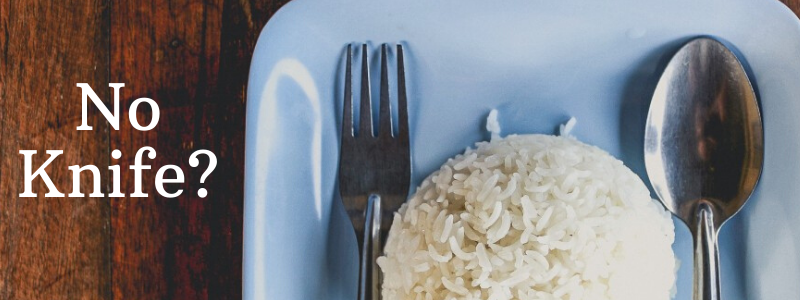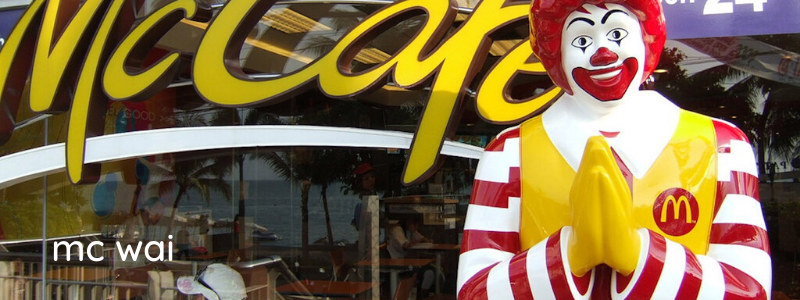What Should I Avoid Doing in Thailand?
Thailand is one of the most popular destinations in the world for travelers. Visitors from different cultures and countries head here to sample all that the ‘Land of Smiles’ has to offer.
But planning a trip properly isn’t as simple as buying a plane ticket and booking a hotel. Visitors to Thailand, should also be aware of some things that they should avoid doing.
In addition to traditions that you may not be familiar with, understanding what isn’t socially acceptable as well as being aware of potential scams and safety issues is key to ensuring you get the most out of your vacation.
Knowing what you should not do will help avoid embarrassing, unhealthy, over-expensive or even dangerous situations in a foreign country. Here is a rundown of some things to be careful of not doing whilst on holiday in Thailand.
Don’t Drink The Water
Although tap-water meets international standards in Bangkok, you won’t find many people actually drinking it. And it’s the same across the country, Thais always drink bottled water. So, stay safe and do the same regardless of where you are staying.
It’s similar situation with ice. If your ice-cubes have holes in them, then it will have come from a supermarket or the 7-eleven and is safe. But ice is often bought as a big block and then hacked into pieces in the back of the bar or restaurant. The ice itself maybe OK, but you don’t know what’s been used to cut it and the surfaces it’s been on before going into your drink.
Don’t Gamble
If someone offers you the chance to play a few hands of poker for money – just say no. Police sometimes have crackdown on card schools. Here’s a report of a bust in Pattaya where 32 pensioners were taken down for the crime of playing Bridge.
Gambling is pretty much banned in Thailand. The only legal gambling is the fortnightly lottery and betting on horse racing in Bangkok. Horse racing is held a couple of times a week at tracks in central Bangkok and onlookers can wager legally.
Don’t Talk About the Royal Family
Seriously. Best not to unless you’re being 100% super positive. Even asking a Thai why you can’t offer personal opinions about the King or other royals will get you into trouble or at best make the person you’re talking to feel uncomfortable. Jail terms for lèse-majesté are more severe than for murder.
Royal images are also revered. So if you drop a coin or a banknote, don’t stand on it to stop it from rolling or blowing away. Bend down and pick it up by hand.
Don’t Vape
Vaping and the use of e-cigarettes has been illegal in Thailand since 2o14. Although the chances of getting arrested for using one are very slim, it does happen. Here’s an article about a Frenchwoman who ended up being deported in 2019 for just being found in possession of an e-cigarette (not actually using it)
So if you really have to vape, do so in the confines of your hotel room and not in public.

Don’t Smoke
Only joking. Smokers can still light up. But the number of places where it is permitted is reducing rapidly.
Smoking is prohibited in all indoor public places; indoor workplaces and public transport. Outdoors, smoking is not allowed at any facilities for exercise or sports. Or at any sporting competitions. Likewise it’s banned in public parks, zoos, amusement parks, playgrounds and markets.
And there’s a 2,000 Baht fine for dropping cigarette butts in the street, on the beach or in any public space.
Don’t Raise Your Voice
Keep calm and carry on, as shouting when you don’t receive good service, things aren’t going to plan or are trying to resolve a problem doesn’t work. Staying calm and reasonable is key to resolving any situation here. Especially when the person you are mad at probably isn’t the actual cause of the problem. They’re just the messenger tasked with delivering the news to you.
To paraphrase a bit of Buddhist thinking . . . When people shout and argue their hearts get distant. They then say words that distance each other more. The result is that there comes a time when the distance is so great they cannot find a path to return.
So chill, and try to find a compromise.
Be Sure to Cover Up in Temples
If you’re planning on visiting any temples or royal palaces, remember that your body should be covered, including shoulders and knees.
This means no short skirts, shorts or tank tops. Larger temples will have signs on display mentioning the dress code. And there’s usually somewhere visitors can borrow a sarong if required. You won’t see signs in small village temples, but the same rules do apply.
Don’t Automatically Trust Your Taxi Driver
Many people hop in a cab, strike up a friendly conversation with the driver and then find out that the destination they want to visit is actually closed for the day. Oh No. Fortunately, the driver knows a good alternative. And as he’s your new best buddy he’ll take you there instead.
You’re going to be scammed if anything like that happens. Don’t take a strangers word that a temple or attraction or business is closed. The same applies to random strangers who strike up a conversation with you in the street and then offer to ‘help’ you. If you want help, ask for it. Avoid ‘assistance’ from anyone who randomly approaches you in the street offering it.
Avoid Cheap Bus Tickets to Cambodia
Avoid the cheapest bus or minibus tickets. Backpackers may think that they are young and streetwise and can avoid being scammed. But the companies selling dirt cheap transport from Bangkok to Siem Reap (for example) have been running the same scams for years. Yes, you will get from A to B. But on the way scammers will attempt to rip you off. These scams have been written about extensively online over the years.
Pay a little more for a reliable service. Giant Ibis is a legitimate Cambodian bus company that runs the route. And the Thai government’s ‘Transport Company Co’ also run a daily bus service. Both are under $30 for a one way ticket.
And even if you are taking a route within Thailand, whilst you are unlikely to get scammed, the cheapest services will pack the vehicles to over capacity or take random detours as the driver runs errands on the way for some additional cash.
Don’t Put Food in Your Mouth With a Fork
Do as the locals do and shovel it in with a spoon.
Don’t Cut Your Food With a Knife
Unless you’re dining in a western restaurant you’ll quickly notice that you have a spoon, a fork but there’s not a knife in sight.
This is because a knife is rarely required when eating Thai food. There aren’t large slabs of meat that have to be cut up on the plate. Everything is finely chopped or grated before cooking. If you do have to cut anything, just use the edge of your spoon.

Cover Up
Full public nudity is illegal. But there’s no law about topless sunbathing. However it is against Thai customs and traditions and so isn’t something you will see Thai women doing on holiday.
There isn’t really any issue if you do decide to go topless on a busy tourist beach or by your hotel pool. There won’t be any repercussions or complaints. But do cover up away from the beach. This means don’t walk into a restaurant or shop wearing nothing but a bikini or speedos. Put a t-shirt and shorts on.
Three Thai Dishes To Avoid Trying
I know, I know, Thai food is some of the best in the world. And when people come here they want to try some of the weird and wonderful local delicacies. However, there are also some dishes that are best avoided.
Pig’s Blood Soup (Luu Moo) : You’ll find this for sale in markets, a deep red bloody mess of uncooked pig’s blood and offal, with noodles. If you’re stomach isn’t used to such things there’s a good chance you’ll develop a bacterial infection . . .or worse.
Shark Fin Soup : Despite the worldwide outrage and ban in many countries, Shark’s Fin Soup can still be found for sale in old fashioned Chinese restaurants in most cities around Thailand. Do the right thing and don’t try it.
Moonshine (Lao Khao) : Every small village has it’s own illicit distillers who will make very potent rice-based liquor. And it’s not uncommon for friendly locals to pass a bottle around to their visitors. But it’s better not to take a swig.
Lao Khao is an extremely unpleasant to drink and severs just one purpose. To get you as drunk as possible as quickly as possible. There’s no quality control, so expect a high percentage of methanol in with the ethanol. Which is one reason why many people go blind or even die each year from drinking it.
Don’t Touch Anyone’s Head
Although I’m not sure why you would in the first place. But if you are tempted to tussle someone’s hair or give a friendly pat on the head to a child – don’t. In Thailand, the head is considered the most holy and cleanest part of the body. So by touching someone’s head you’re disrespecting that person.
Don’t Point With Your Feet
You can point with your hands, no problem. Thais do that all the time. No news story would be complete without a photo of a victim pointing at the accused. Or a culprit pointing at a stash of drugs; a body or a wrecked vehicle etc. There’s even a dedicated twitter account and website devoted to Thais Pointing At Things.
But your feet are the lowest part of your body and as such shouldn’t be used to point at anything. Don’t casually move your foot to point at a person, animal or object. It is it also impolite to point the soles of your feet towards anyone when sitting on the floor. Sit with your feet under you or cross legged or if your legs are outstretched ensure the soles of your feet point aren’t in anyone’s line of sight.
Don’t Put Your Feet Up on the Furniture
It’s very common to come home, kick off your shoes, sit on the sofa, turn on the TV and put your feet up on a table. But that’s not considered polite in Thailand. Feet don’t belong on furniture.
Whilst no one will be spying on you in your hotel room, when you are out and about or travelling by bus, train or plane, try to avoid putting your feet up. That means don’t rest them on the back of the chair in front of you. Don’t put them on armrests. Again it’s unlikely that anyone will say anything but there is a good chance someone will take a photo.
The next thing you know you’re being passenger shamed on Thai Facebook. And if that gets shared enough overseas media will pick up on it. For example this woman who put her feet up on the back of a seat during a bus journey in Thailand.
Take Your Shoes Off
As a rule take your shoes off whenever you enter anyone’s home or a temple. Certain offices also have their own rules about removing footwear. As do some shops and even restaurants.
The simple way to avoid making a faux pas is to see if there are any shoes or sandals by the entrance or door. If there are, then remove yours too. Many places also provide slippers for visitors to wear instead of their outdoor shoes.
(Thais find it very hard to understand why most Europeans don’t remove their shoes, which have been picking up dirt and germs from the streets outside, before entering their own homes. And, after living here for many years, so do I.)
Don’t Walk Around Barefoot
No-one will think you are spiritual if you’re walking around the streets in bare feet. Monks wear sandals when they are out of the temple.
Instead, people will be more concerned with you spreading dirt inside their shops or businesses. Unless you are too poor to afford the cheapest pair of flip-flops, they also won’t understand why you choose to go barefoot. The streets will be covered in traces of garbage and animal feces.
Barefoot on the beach = no problem. Barefoot on the road = bit of a dick move.
Don’t Assume Drivers Will Stop at a Crosswalk (Zebra Crossing)
An old favourite. This catches people out all the time. They see white painted stripes on a road and just assume that it must indicate a place to safely cross the road. Newbie mistake as Thai drivers don’t see it that way.
So, don’t expect traffic to give way to you and stop if you decide to walk across a road using a pedestrian crossing. Many people are injured or die each year after being hit whilst using a zebra crossing. In early 2022 there was a very high profile case of a doctor crossing the road outside the hospital where she worked who was hit and killed by a motorbike whilst crossing the road on a zebra crossing. The rider was an off duty policeman who was speeding. He was sentenced to 15 months in jail and a 5,000 Baht fine. Full story
And, as a bonus tip, even if the lights are on red take care when using a crosswalk at an intersection as drivers will still try to turn left, as that’s usually permitted. In theory pedestrians should have the right of way over traffic turning left, but that doesn’t apply in reality.
Hands Off the Monks
Don’t touch monks. This mainly applies to women, as women aren’t allowed to come into physical contact with Buddhist monks. So ladies, if you are in a situation where you want to give something to a monk, don’t hand it directly. Put it down so they can pick it up. A monk will do the same if he want’s to give anything to a woman. Remember this if you’re making a donation or giving alms at a temple.
Visitors might also encounter monks when travelling on the subway and skytrain in Bangkok. Seats near the doors are often reserved for either pregnant women, old folks or monks. But if you see a monk sitting there and the seat next to him is vacant, don’t sit in it if you’re a woman. He’ll feel obliged to get up and move. Just in case you accidentally come in physical contact with each other.
Don’t Shake Hands. Wai.
One of the reasons why Thailand didn’t suffer severe effects from the coronavirus has been attributed to the lack of physical contact between strangers. Thais don’t shake hands when they greet each other or say goodbye. They offer a prayer like greeting called a ‘Wai’. There’s no high-fiving, backslapping or kisses on the cheek either.
There are various rules about how high your hands should be in certain social situations. But in reality, if someone Wai’s you then return the greeting. Or if you greet anyone in a social situation, then also offer a Wai when saying hello. The same as you’d normally offer a handshake.
You don’t have to Wai staff in the 7-eleven or supermarkets etc. But it’s a nice way to be polite to hotel staff or locals that you meet. Especially if they are older than you, as it shows you are paying them respect.

Don’t Overstay Your Visa
It seems obvious. Yet every year thousand s of people do. Thailand has laws against overstaying but as they aren’t as draconian as many western countries. Tourists often feel that overstaying their visa isn’t a big deal. But it is.
If the police decide to check your passport for some reason and you are even one day overstay, legally, that is deportation and an automatic 1 year ban from re-entering Thailand. The good news is that the police don’t often randomly check visa expiry dates in passports.
Overstaying visitors will usually just pay the 500 Baht / day fine at Immigration when they exit Thailand. Providing the overstay period is under 90 days, they won’t be banned form re-entering Thailand. The maximum overstay fine is 20,000 Baht.
Don’t Withdraw Small Amounts From ATMs
The reason for doing this is that even if your home bank has zero or low fees for overseas ATM withdrawals, Thai banks don’t. Users with overseas cards are charged 220 Baht ($7) for each withdrawal. Thailand is still mostly a cash based society, so you’ll have to get into the habit of going to the ATM again.
Plan ahead and take out enough cash to over you for a few days. Rather than making small withdrawals daily.
But it’s always better to use ATMs that are attached to a bank. Not because of scams involving card skimming. That is rare here. But, simply because if there is any problem and the machine eats your card, you can go inside the bank branch and the staff can open the machine for you. You won’t have to waste a day or two trying to get your card back.
Don’t Get a Black Henna Tattoo
Regular henna tattoos have long been a favorite of visitors. They are a safe, natural and temporary way to get a tattoo design. Good fun for kids and adults as a short term reminder of a holiday as they fade over time and then disappear without marking the skin at all. Real henna, is an orange / brown colour.
However, you should definitely avoid getting a black henna tattoo. Henna isn’t black. And black henna isn’t a natural product. The main ingredient is a strong black dye, paraphenylenediamine, which is used in some hair dyes in low concentrations. But when applied to the skin, often in conjunction can cause chemical burns or allergic reactions.
Do Respect Buddha Statues and Images
Many people in the west have a Buddha image in their homes for decoration. And a Buddha image is often co-opted as a “cool” tattoo, or even a theme for an Asian bar or restaurant. But it’s not acceptable if you’re a Thai Buddhist.
Having a Buddha tattoo or a Buddha likeness by your swimming pool or printed on a t-shirt is considered very disrespectful in Thailand. (This also applies if you’re visiting Sri Lanka which practices the same type of Theravada Buddhism as Thailand.)
When you are visiting temples, don’t disrespect Buddha by posing for photos with your back to a Buddha image. Don’t imitate the pose of Buddha for a photo and definitely don’t climb on any Buddha statues. More information of how to be respectful to Buddha.
Don’t Take Photos With Captured Animals
Visitors to the busier beach areas, Phuket, Pattaya, Hua Hin and Samui for example will be offered photo ops with various types of wildlife. Touts will wander the streets with their ‘pet’ lizard, snake, gibbon or whatever and offer it up to tourists to have their photo taken with.
This cruel practice can only continue if tourists keep paying to have photos taken. Please don’t take photos with wild animals when you’re on holiday.
No Kissing in Public
A quick peck on the cheek as a greeting is OK, but try to avoid sticking you’re tongue down your partner’s throat in public. Smooching and making out in public is impolite in Thailand.
Holding hands or putting your arm around a loved in public one is fine. Go to any shopping mall and you’ll see straight and gay Thai couples doing this all the time nowadays. Although it is a relatively new thing.
Avoid Cheap Buckets of Alcohol
This is more for the younger crowd. As most grown ups tend to avoid sharing plastic buckets of alcohol infused sugar water. But go to any backpacker area and you’ll see bucket cocktails for sale very cheaply.
But they’re a false economy. There’s relatively little alcohol in them, and what there is is the cheapest generic version of vodka / gin / rum that can be bought. The bucket is mostly ice and over-sweet coke, orange or other mixers. The best case scenario is that you still have to spend a lot to get drunk. The worst case you end up with a serious hangover.
Finally, Don’t Fall For the Gem Scam
This is the granddaddy of Bangkok scams. The scam that launched a million Google searches and one that’s been going since before the internet even existed. Yet people still fall for the ‘special government sale / buy cheap gems / make money reselling them at home’ scam. Many victims are people who swore it could never happen to them.
Way back in 2002, a news report suggested that 15,000 people a year were being ripped off by this scam. Serious money was being made by scammers, which probably explains why virtually nothing has been done to stop it over the years.
There are a whole load of other Bangkok scams which are still occasionally perpetuated on unsuspecting tourists, they are detailed here. But in reality, if you just assume that anything that seems too good to be true, probably is a rip off, you’ll be fine.
++++
Please remember that wherever you travel, do some homework about the places you want to visit and cultural or religious differences to be aware of. It will improve your holiday experience no end.
You are in a foreign country and they do things differently in Thailand.




